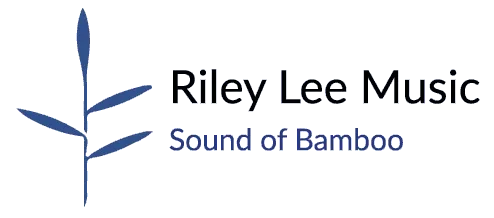In some of the discussions about shakuhachi/hochiku/hoki, etc., there seems to be some confusion between music making and spiritual practice/blowing Zen (suizen).
Nothing new here, as this confusion has been in Japan and elsewhere long before we shakuhachi list people came on the scene.
Here is, in my opinion, an example of this confusion. There seems to be the idea that the meditative/spiritual endeavour of a person playing one type of instrument, eg, a shakuhachi, is somehow more or less valuable than that of one playing another type of instrument, eg, a hochiku or hocchiku.
A belief that the nature of one’s instrument defines one’s spiritual experience is as absurd as believing that doing meditation in, for example, a temple (built specifically for the purpose) is, by definition, and always will be, ‘better’ than doing meditation, for example, at home (built for other purposes).
Sometimes this may be true, but not because of the buildings themselves.
Some instruments might be more condusive to meditation, just as some buildings are more conducive to meditation. But no material ‘thing’ exists that is more or less inately spiritual than any other ‘thing’.
I would take it one step further: to think that a hochiku is particularly more spiritual than a regular shakuhachi, or an electric guitar or any other musical instrument, is risking mistaking the plate for the food.
I appreciate the pleasure of making and playing simple bamboo flutes, hochiku or otherwise. I also respect and acknowledge the challenges these instruments present to their players. I know that often a challenging instrument can make for a great performance, eg, a recording I recently heard, of Choshi played on a quickly and roughly made flute.
However….
If “the main difference between a shakuhachi and a hochiku is the philosophy behind the two instruments,” and, if one plays a shakuhachi with the same PHILOSOPHICAL attitude as when one plays a hochiku, then where is the difference? There may have been a difference in attitude during the making of the instrument, but we are talking here about playing the bamboo, not making the flute.
For example, imagine (it’s not hard!) someone who practices ‘blowing Zen’ for years on what s/he thinks is a really good hochiku, made in the spirit of the hochiku. But actually the flute is really just a badly made shakuhachi. Or imagine that the person knows that the flute wasn’t made as a hochiku, but, doesn’t care how the flute was made; s/he just wants to do ‘blowing Zen’.
So, for argument’s sake, this shakuhachi wasn’t made in the ‘spirit’ of a hochiku, but rather by someone who had never even heard of the hochiku tradition, and who just wasn’t very skilled at making shakuhachi. The flute can’t play ‘dai kan’; the sound disappears with all but a small volume of air; it is so out of tune that it can’t easily play pitches based on natural laws of physics (such as octaves); it can’t be played together with other folks, etc. It requires a gentle, controlled breath to make it work. (This sounds just like a description of a hochiku.) In any case, the player thinks that this shakuhachi, even though it isn’t a hochiku, does very nicely when ‘blowing Zen’.
What is the difference between the person using this instrument and another person who practices ‘blowing Zen’ on an ‘authentic’ hochiku made by a maker who is very much into the ‘hochiku’ tradition?
In my opinion, sometimes discussions of differences between hochiku and shakuhachi might be attempts at placing a high value on one thing at the expense of other things. Generally speaking, value judgments are counterproductive in meditative practice.
Also, think a moment about the idea that it is very important to hear hochiku live. We are told this is so because much of the tone colour is lost on CDs. This may be true, but how does this differ from regular shakuhachi, or any other musical instrument?
[By the way, someone once asked/lamented how he could ever sound like a performer whose CD he recently listened to. Do not despair. From my limited experience, it is amazing what magic can occur in recording studios. Just try playing in a large concrete stairwell to get an idea of this. A good recording engineer can improve anybody’s sound even more than a good stairwell can!]
If the point of playing hochiku is to do blowing Zen, then the question is: Why would someone want to listen to ‘blowing Zen’ anyway, live or recorded? That would be like watching someone meditating. I suppose that doing so can be a calming, meditative experience, and if it helps one meditate, great.
One could argue that listening to a teacher play his/her hochiku helps one become better at playing one’s own hochiku. But then one is now talking about music making, not about spiritual practice. In general, you don’t get very good at meditating by watching someone else play a flute.
It can be meditative watching people meditate, but likewise, it can be meditative listening to music. Observing spiritual practice isn’t a very rewarding spectator activity. Listening to music however, is.
With spiritual practice, it DOES NOT matter what sort of bamboo flute you blow into. It might be better if you threw all of your pieces of bamboo away, as just more distractions, and got on with meditating.
Music making can be spiritual practice, and spiritual practice can include the making of music. They are, nevertheless, two distinct activities. They work under different rules. Confusing the two can result both in bad music and ineffective spiritual practice.

